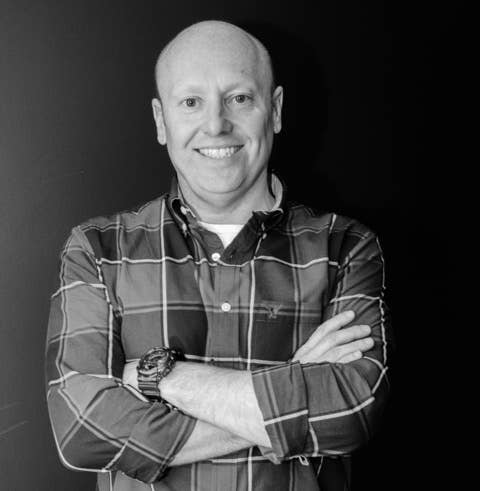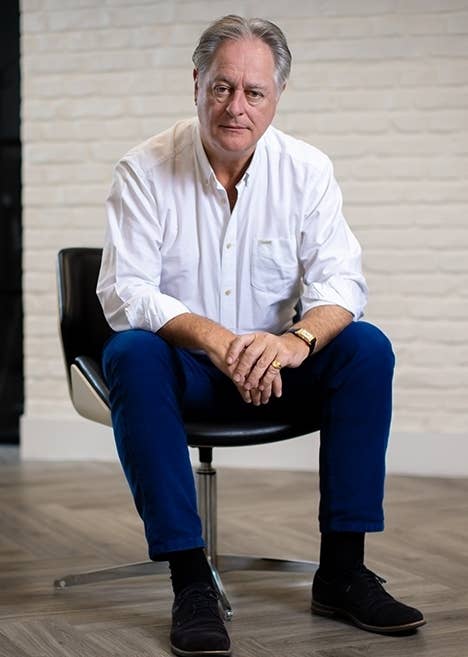Why did two small British publishers attract big money?
We speak to Catalis Group and Sold Out about their recent acquisitions and the growing investor interest in UK games firms
Last October, NorthEdge Capital completed its acquisition of Catalis Group, the UK games company that owns Bomber Crew publisher Curve Digital and QA specialist Testronic. The investor poured £46.6 million into acquiring a more than 50% stake in the company, valuing the group at £90 million.
A little over a month later, UK publisher Sold Out was acquired by Swedish firm Toadman Interactive in a deal worth £16 million -- the fourth acquisition Toadman made last year, but the first in the realm of publishing.
Two significant deals bringing a lot of investment into the UK publishing scene, particularly focused on the indie space given each company's portfolio, but why? For Toadman CEO Robin Flodin, it's indicative of the expertise emerging from the region.
"Britain has a great industry, it has a lot of talent in the industry and I think as these companies are coming up, people see the potential of picking them up and bringing them into the bigger whole," he tells GamesIndustry.biz. "This is a trend in the [wider] industry, the consolidation of companies to further expand and be able to take a place on the bigger stage.
"It's somewhat required in some ways, because it gives you more muscle, more power and more ability to actually reach consumers and produce products in the best way possible. That's a trend we're seeing, it's happening all over the place, not just the UK."

He notes that the UK market currently "encourages selling [your company] a lot", whereas the emphasis back in Sweden is on buying other companies to expand. In the case of Toadman and Sold Out, that made a natural fit -- although Sold Out COO James Cato notes that, "we weren't looking to sell."
Instead, the two companies had already been working on projects together, and Flodin proposed a more permanent partnership. Toadman was a group of developers looking to expand, Sold Out was a publisher looking for a way to better support the developers it works with.
"We're effectively going down the same road, and it's much better to do that together," Cato explains. "We've got publishing expertise but we don't have development expertise, so we were slightly limited with the support we can give to our development partners.
"We're expanding the services we can give to our dev partners. Because it's really important for us [to work with them] not just for one project, we're here for the long-term with our partners. That's really important to us.
"I was taught from an early age, don't try to be something you're not -- and I'm not a developer."
For Catalis Group CEO Dominic Wheatley, the interest in UK publishers among investors and other games firms is a sign of how the shift to digital has created more opportunities to get involved in the publishing business.
"Brokers and banks are holding seminars on the video games industry, more reports and papers are being written up on it. There's a lot more interest than there has been for a long while"
Dominic Wheatley, Catalis Group
"Until five years ago, [it was] prohibitively expensive because it was an inventory-based business," he explained. "You needed warehouses, discs in boxes at $10 a pop from PlayStation, Nintendo and so on. You might only spend £1 million on developing a game, but if you wanted 100,000 copies of it, that was another £1 million.
"The discs and the costs and the capital required to be in the inventory business meant that actually there was no one around who was even beginning to do it, and therefore there was no opportunity to invest. And anyway, no British investor up until recently would have had the appetite -- and they probably still wouldn't have the appetite if it was a disc-based business."
Wheatley points to the range of UK games companies that have successfully floated over the years, ranging from studios like Codemasters to developer-turned-publisher outfits like Team17 and Frontier Developments. All of them are built largely around digital products, so the cost of investing in these companies becomes much more reasonable.

"It's changed the whole investment profile. Now the risks are when you spend whatever money on a new game, is it any good?" he continues. "That's it, really. That and whether you're any good at marketing. But even marketing... in the old days, you had to splurge all your marketing upfront, get the sides of buses and TV ads, because if you didn't get a big push on day one out of retail, if retail saw the product lingering on the shelves for anything more than about a week, they immediately rang you up and wanted to mark it down, slash the price, send it back. Now our marketing is split very evenly between about 50% upfront to build up the interest for the first week, and then after that you can continue spending money sending people to the platforms because the product never goes off the shelf.
"It changes the dynamic and therefore the risk profile... The profile is lower, which suits the British investor because they tend not to be as gung-ho as their American opposite numbers. And the size of business that can get going in this market is far [smaller]. What's the opportunity now? Are you going to invest in Activision, with a market cap of $50 billion? If you're a British fund manager, you're not exactly going to make much of a difference. But if you want to put $25 million into Team17, you've got a decent stake. And if she goes to the moon, you're going to be carried along with her, whereas Activision has arguably already reached the moon."
Sold Out naturally asserts that there is still room for physical, and has made a business for itself bringing digital games into stores, both from the indie space and from larger studios such as Rebellion and Team17.
"When we set this business up in 2014, we saw there was still a lot of revenue left on the table in physical publishing," says Cato. "There was a degree of undue haste of rushing into solely digital publishing, although we saw that was a road we wanted to cover."
"There was still a lot of revenue left on the table in physical publishing [and] a degree of undue haste of rushing into solely digital publishing"
James Cato, Sold Out
Sold Out is, of course, evolving with the time and plans to release its first six digital products in 2020. Cato adds: "At the end of the day, we want to expand, get better products, invest more money and working as a partnership allows us to do that little bit quicker."
As mentioned, the UK publisher was the fourth of Toadman's acquisitions in 2019, following the purchase of Petrol Advertising, Antimatter Games, and GameSessions. Flodin says there are plans for more, but first the company is concentrating on integrating these new additions without altering the great qualities that first attracted his interest.
"Some companies come in and change the structure, change the culture. In our way, Sold Out will remain Sold Out, it will continue to be run by James and Garry [Williams, CEO]. We're not interested in coming in and telling people how to do their job, we're interested in finding synergies and ways to work together.
"We're definitely going to do more acquisitions, that's our goal in the long-term, but first it's important to make sure that this integration... We've done a few major acquisitions in not that long a time so our first focus is to make sure that fits."
Meanwhile, acquisitions are central to Catalis' plans. Part of the NorthEdge deal included an eight-figure sum for Wheatley to use on potential purchases "as and when I find opportunities." The company already demonstrated its intentions last year with the purchase of Runner Duck, the developer behind Bomber Crew -- one of Curve Digital's biggest hits. Curve and Runner Duck are now working on the future of the Crew franchise, with the hopes it can be one of the former's pillar franchises going forwards.
"[NorthEdge is] very keen on helping us build the company through acquisitions," Wheatley says. "There is a sum of money set to one side for me to be able to use to acquire companies, both for Curve Digital -- which would obviously be game developers with IP that's useful -- and we're nearing our first acquisition for Testronic, which will expand our footprint in terms of geography."
And he expects the UK market will see more investments and acquisitions in the near future, thanks again to the success stories emerging from the development and now the publishing space.
"People are now more interested in the games industry in general, because they've seen the terrific wins on NASDAQ," he says. "We've seen Team17, Codemasters, Frontier, Keywords, and Sumo [achieve an IPO], and that's now built a sector. Various brokers and banks are holding seminars on the video games industry, more and more reports and papers are being written up on it. What they're trying to do is to get their clients interested in investing in the industry. There's a lot more interest than there has been for a long while."









